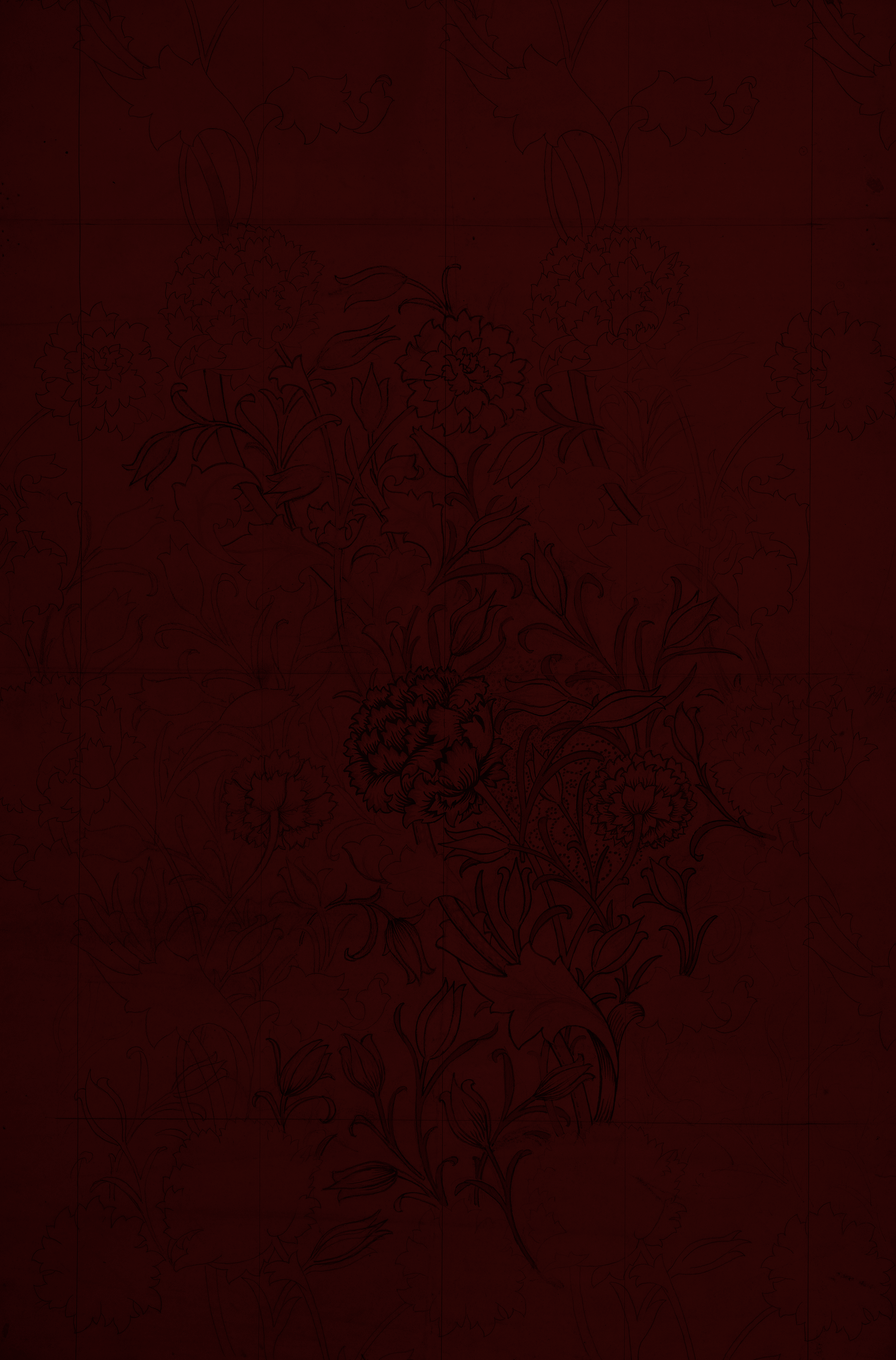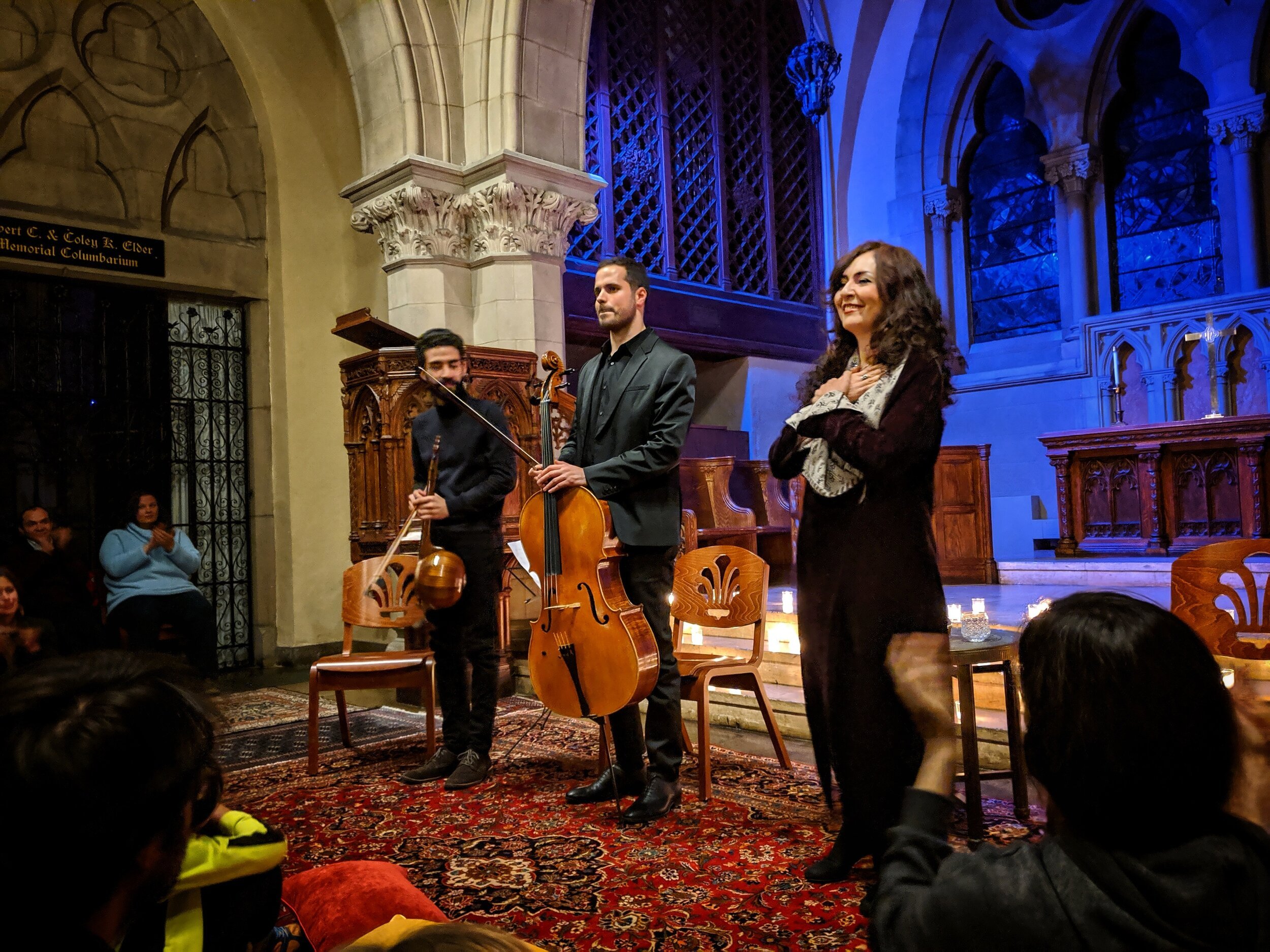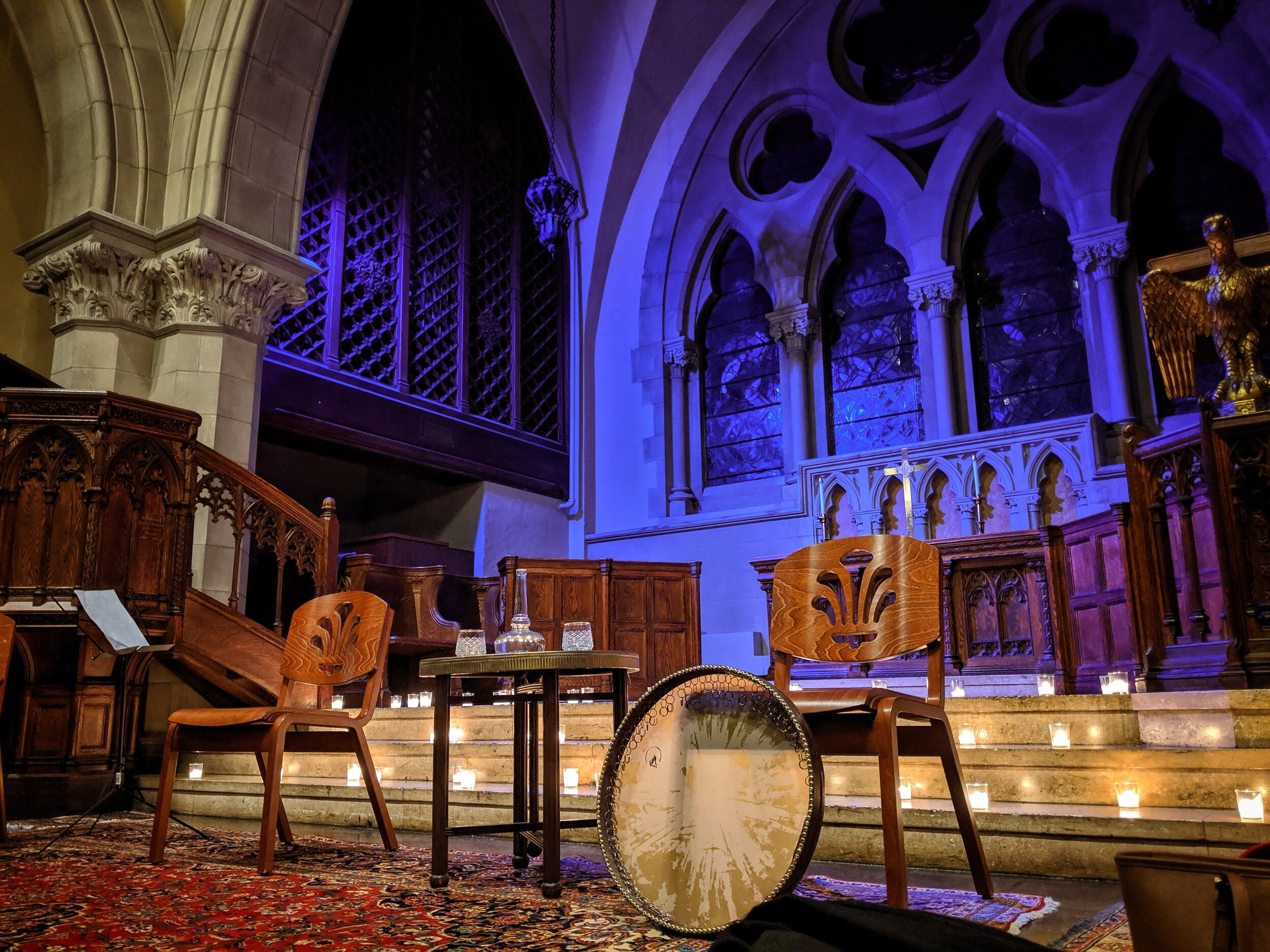
Sacred Voices - Mahsa Vahdat
Live at Gordon Chapel

‘When I sing, I don’t know if I am old or young, where I am from or where I belong; I feel I am a lover, or a mother, or a wanderer... My singing is a response to my life, and it gives voice to the deepest parts of who I am. — Mahsa Vahdat
Since the Islamic revolution of 1979, the female voice has been restricted in Iran. Women vocalists are only permitted to perform in a choir, or sing solo in the presence of women-only audiences. It’s commonly said to be enforced under the pretext of certain religious dogmas, but Persian singer Mahsa Vahdat believes it’s more politically motivated, and is actually based on the fear of the female voice itself… and the power of what it represents.
Mahsa Vahdat
Mahsa Vahdat is a prominent performer of Persian vocal music, and a strong advocate for personal and artistic freedom. Her career has given a deeper knowledge of Iranian poetry and music to large audiences throughout the world.
Mahsa has recorded albums with renowned artists such as Norwegian jazz pianist Tord Gustavsen, Turkish musician Coskum Carademir, and the Kronos Quartet. In 2010 Mahsa was granted the Freemuse Award, given by an independent international organization of the same name that advocates freedom of expression for musicians and composers worldwide.
Naseem Alatrash
An accomplished classically trained musician and improviser of diverse styles, Palestinian cellist Naseem Alatrash has earned a reputation for fearlessly broadening the horizons of the cello on the world stage, and is recognized for his creative, untraditional, and unique style. A soloist, recording musician, chamber musician, composer and teacher, he has been featured at numerous renowned concert halls and festivals throughout the world.
Naseem continues to be a voice for Palestinian culture and an advocate of its music. His recent Project “Bright Colors On a Dark Canvas” aims to use his original music combined with art to tell the stories of refugees. His goal is to raise awareness about different refugee crises and help raise money to support refugees around the world.
Farzin Dehghan
Farzin Dehghan is an emerging Kamancheh virtuoso and improvisor from Isfahan, Iran. Farzin started playing Kamancheh at age 12 and self-taught himself until 16 when he started his academic musical journey in the Musical Performance academy at John Overton High School, and went on to Berklee College of Music to attain his Bachelor of Music in Kamancheh/Oud Performance.
Farzin completed his Master of Music ('21) degree at the New England Conservatory studying Contemporary Improvisation and Music Education. He teaches Kamancheh, Improvisation, Daf, Oud, Setar, and Radif.
Erini
Erini (aka Eirini Tornesaki) is a vocalist of jazz, Greek traditional music and contemporary styles, who blurs the lines between genres and explores intercultural dialogue through music. Growing up on the Greek island of Crete, she was always moved by the stories of her family, who were refugees from Smyrna (Izmir).
Trained in the Western classical music tradition from the age of 6, Erini’s curiosity for music from around the world led her to England to study Contemporary Vocal Performance; she then went on to tour as the principal vocalist with Cirque Du Soleil for 3 years. She appears in many prestigious venues throughout the world either as a soloist, a collaborative vocalist, or with her traditional Greek music group the Pharos Ensemble.












